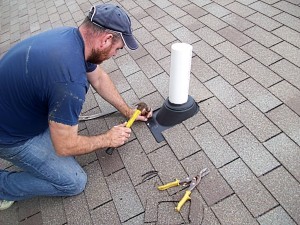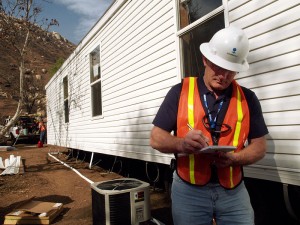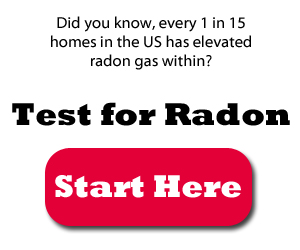Why would anyone need to hire a radon professional or mitigation contractor?
Radon is the second leading cause of lung cancer in the United States and many other countries including Canada and the UK. In the US alone, it is responsible for the deaths of more than 21,000 each year.
The biggest issue is that radon awareness is relatively low. Few people know it exists, and those that do often try to discredit the fact that it’s a detriment to public health.
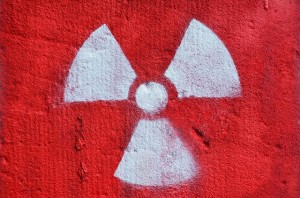 Radon gas is odorless, colorless and tasteless which means it’s virtually undetectable. It makes sense why people would be quick to ignore it.
Radon gas is odorless, colorless and tasteless which means it’s virtually undetectable. It makes sense why people would be quick to ignore it.
At low concentrations and when exposed in short bursts, there are no known side effects or symptoms. However, with a longer period of exposure those subjected to the deadly gas may develop lung cancer and any number of additional pulmonary ailments. Radon gas has been linked to chronic asthma, heart disease, cancer of the lungs and other areas of the body, respiratory infections such as pneumonia or bronchitis and more.
The saddest part about all of this is that it’s pretty easy to eliminate and remove from your home.
All you need to do is conduct annual tests for the gas, and take action if elevated levels are discovered.
Testing for Radon Gas
You can purchase a DIY radon testing kit at your local hardware store or online. If you don’t want to do it yourself, you can hire a professional radon contractor to come and take a look at your home. Most of them will offer a free consultation which includes a short-term test.
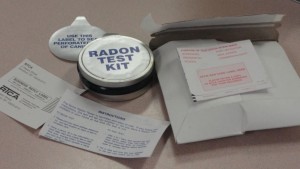 Just so you can judge the average cost, tests range from about $10 to $25 depending on where you purchase them and what kind of equipment is used. Most of them require you to place collection vials in your home for a period of time, which can be used to determine your indoor air quality.
Just so you can judge the average cost, tests range from about $10 to $25 depending on where you purchase them and what kind of equipment is used. Most of them require you to place collection vials in your home for a period of time, which can be used to determine your indoor air quality.
If you conduct the test yourself, you’ll need to send the samples to a remote lab for testing via mail. The lab will perform the necessary measurements and mail the results back, or post them online if that’s an option for the particular test you purchased.
Radon Gas Mitigation
If or when elevated radon levels are discovered you’ll need to hire a licensed professional to install a mitigation system.
A mitigation system is a unique air ventilation system — usually with an electronic fan — that will remove the concentrated radon gas from your home. It does this by ventilating the gas into the open air outside, where it can disperse more evenly instead of being trapped.
The mitigation system that’s needed will depend on the layout and structure of your house. To read information about some of the more common forms of mitigation, head on over to our guide on the topic.
When hiring a professional, you’ll want to ensure they have been certified by looking for their name or business on the National Certified list (NEHA/NRSB). Don’t just take their word for it either make sure you actually see physical proof of such. Certified contractors have been to school which means they’ve passed tests on radon mitigation. In order to keep their certification, they must continue to take classes on the material. If you allow a non-certified contractor to install a system there’s a chance they could end up doing more harm than good. If a system is not up to EPA standards in some states it’s even possible that homeowners will have to pay additional costs to get it up to par.
Some additional things to look for when hiring a radon professional include:
~ Ask contractors to provide you with a copy of their Liability and Workers Compensation insurance certificate. If they do not have insurance or workers comp then you will be at a very great financial risk should any of those who are employed become injured on your property.
~ Make sure the mitigation system and included fans – where applicable – are guaranteed and covered under a warranty. If the system does not work properly after install, the contractors will return to ensure it is fixed at no cost to you. If the fans and related components malfunction, you will need to have them replaced. A guarantee will protect you in the event something isn’t working properly with the system and a warranty will protect any of the necessary components should they break or malfunction.
~ Ask for previous work references and recommendations. If the contractor cannot give them seek them out yourself. If there are no previous records of the contractor’s work then tread lightly. Another way to check on their work ethic is to ask for a couple addresses where the contractors previously did work. You can visit said addresses during an appropriate hour and speak to the residents.
~ Make sure the contractor is or is working directly with a licensed electrician. In certain states, it is actually illegal to perform electrical work without the proper credentials.
How Do You Find a Radon Professional?
Tracking down a trusted or certified radon contractor can seem daunting. The steps required are actually pretty simple once you know what to do.
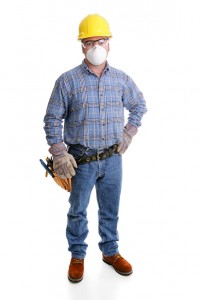 First, you should visit the Department of Health website for the state you currently reside in. From there you can find information regarding indoor air quality, or more specifically radon.
First, you should visit the Department of Health website for the state you currently reside in. From there you can find information regarding indoor air quality, or more specifically radon.
The reason you should navigate to the Department of Health website is because they compile a list of every qualified radon professional that is authorized to perform mitigation and measurement work in the state. Most states require companies to register with the DOH otherwise they risk losing their certification.
You can use the DOH lists as a reference to track down a few certified radon mitigation specialists in your area. Generally, the aforementioned lists include all of the information you will need to get in touch, such as the service area, business name, address and telephone number. Such lists also include up-to-date expiration information for each contractor’s certification.
There may or may not be out of state contractors that also provide services in your particular state. If that is the case their contact information will be listed on the department of health DOH registry along with all of the other qualified contractors in your state.
Visit our National Radon Directory for more local information on radon gas and professionals in your area. You can also request a free quote from a local radon professional if you know you need one.
What to Expect from a Radon Professional You Hire
It is common practice for contractors to look at your residence and provide you with a free on-site and firm cost estimate. During that time you should also be able to view pictures of previous work the contractor has done and ask any questions you may have about the job.
The individual or company involved should offer you a definitive plan for the project up front. Before any work begins you must comb through the contract to ensure you, your home and the pending mitigation system are protected from anything shady.
At no time should the contractor become irate or give you a difficult time if you need an explanation on various portions of the contract. Pay close attention to the installation guarantee and any warranties covering hardware components or fans for your mitigation system.
Once a contract has been drawn up, the contractor should begin performing diagnostic tests in your home. This allows the specialist to detect many elements in regards to the radon levels in your home. With a diagnostic test they will be able to gauge air flow, patterns and more.
After the installation, the contractor will need to monitor the system to ensure it is working properly. If the system does not lower the radon levels in your home – and sometimes this can happen – they must take the proper measures to remedy the problem. In some cases this would mean installing a second system, or tweaking the original one. It is the contractor’s duty to choose the proper mitigation system for your home, so it should be their responsibility if the one installed does not work properly.
A contractor should never perform the final level tests on your home. They should work with you to hire or contact an outside testing professional. The extra tests will provide the necessary proof that the mitigation system is working as it should. To be quite honest, an added test should also protect the contractor should things go wrong with the system – if it was working at one point.
Will a Radon Contractor Test the Levels In Your Home?
A radon contractor can and will test radon levels in your home and this is perfectly acceptable, however there are some instances where you might want an outside source to check their accuracy. For example after a radon mitigation system has been installed in a home it’s a good idea to have a third party test the levels to cover both you and the contractor should something go wrong in the future, or should the levels change.
Before you decide to install a radon mitigation system you may also use a radon contractor to test the levels in your home. In fact, we recommend you do so that way they can offer you suggestions for potential mitigation systems. You can also perform the test yourself if you are so inclined.

